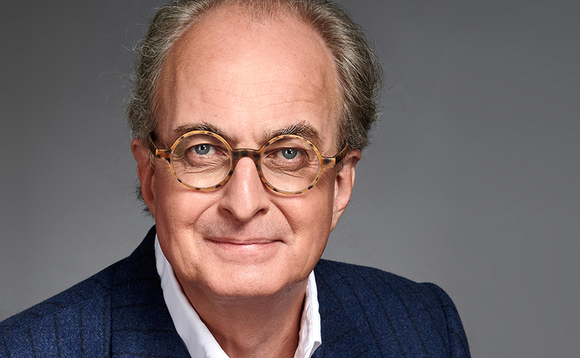
Planet First seeks sustainability investments ahead of EUR 350m fund close

Planet First Partners is targeting sustainability-focused growth investments as it heads towards a EUR 350m close for its evergreen fund, managing partner and co-founder FrУЉdУЉric de MУЉvius tells Unquote.
Planet First was launched in 2020 and was founded by de Mévius and Alexander de Wit. Prior to forming Planet First, de Mévius spent almost 25 years with family-owned evergreen consumer investor Verlinvest, which he had founded in 1995.
"We put sustainability first, but we are also looking for great returns," de Mévius tells Unquote. "As an Article 9 fund, we focus on companies that will bring substantial contribution to one of the EU's Objectives without harm to any other Objective. After establishing compliance with Article 9, we look for companies with the best risk-adjusted returns at growth stage."
Its evergreen fund is targeting EUR 350m and has raised EUR 280m to date following a first close in summer 2021 and a recent second close. It expects to hold a final close in Q2 2022.
The vehicle is backed by family offices, sovereign wealth funds and institutional investors, as well as several tech entrepreneurs.
Planet First invests in Europe and Israel with a "better for you, better for the planet" thesis, covering B2C (consumer health, farm to fork, circularity) and B2B (energy transition, green cities, industry 4.0).
The fund will back 10-15 companies, with initial tickets of EUR 10m-30m and up to EUR 50m available per company. It will generally invest at Series B and Series C stages.
The GP's advisory board provides insights from a range of industries. It includes Formula E and Extreme E founder Alejandro Agag, as well as Connie Collingworth, chief operating officer of the Bill and Melinda Gates Foundation, and MEP and former Belgian prime minister Guy Verhofstadt.
A sustainable strategy
Asked why Planet First chose an evergreen structure for its fund, de Mévius cites flexibility and the advantages that this can bring for potential portfolio companies. "The evergreen structure means that we have the flexibility to take the right term for a potential exit, being an agile investor rather than being condemned to realise assets within a certain timeframe. In fund mode, you have to realise the best assets first to be able to raise your next fund. CEOs and founders like our model, as they see the value-add of having this agility – it means we can align our interests better."
The fund also differentiates the GP from its market peers from an LP perspective, de Mévius argues. "It sets us aside from the rest of the industry, which works in traditional fund types. Planet First organises an annual valuation that will be audited by a third party and be the base for investor's liquidity. We can raise more capital in several years, or just continue deploying according to the existing base. And we will reinvest a large part of the proceeds derived from exits in the other investments."
This sustainability focus feeds into the GP's due diligence processes and ultimately the carry of the fund. "Our due diligence will include a lifecycle analysis and agreeing with founders on a long-term sustainability plan, which will be accompanied by detailed KPIs," de Mévius says. "This forms the basis of our reporting to investors; Part of our carry is based on achieving those targets."
Although ESG and impact are increasingly prevalent topics in the European private equity market, de Mévius differentiates between the two topics in line with the EU Taxonomy. "If a fund is Article 6 or 8, it means you respect ESG but are not looking for substantial contribution to a specific objective, without harming the others." This affects how Planet First assesses investment opportunities, he says. "For example, we have looked and declined to invest in businesses that were perfectly respectable from an ESG standpoint but did not have a substantial contribution to one of the EU objectives."
"Better for you, better for the planet"
Starting with its "better for the planet" philosophy, de Mévius says: "On climate related investment theses, there is now a very clear EU Taxonomy that helps us guide our choices in terms of what is really measurable in terms of climate and industry 4.0. That is well-documented and takes away any greenwashing or greenwishing risk."
The firm has made three investments to date. It has backed London-headquartered Polymateria, which is developing biodegradable and compostable plastics through its Lyfecycle brand. In Germany, Planet First invsted in Sunfire, which develops industrial electrolysers based on alkaline and solid oxide technologies, aiming to facilitate the production of renewable hydrogen and other fuels from renewable electricity, water, and CO2. Earlier in January 2022, the GP announced its investment in Spain-headquartered Submer, a company that provides immersion cooling systems as an environmentally friendly alternative to air-based cooling systems that are generally used in data centres.
While the areas in which Planet First invests are still developing in terms of technology and growth, the regulation around them is also developing. "On social sustainability, we are treading quite carefully," de Mévius says. "We are very active in sourcing consumer health, but we have not done deals there yet as we want to make sure that anything we do has a measurable impact."
De Mévius's experience in consumer investing allows him to take a view on how the other areas of focus for Planet First will develop. "We have seen some sobering developments on the foodtech side, where a number of companies have seen their valuations halved as a result of there being a slight bubble, including Beyond Meat," he notes. "Companies with amazing tech don't always have the right teams to develop their commercial journey, but that is something we are good at, having been a consumer investor for some time, while also being equipped to find the right technology. The fact that valuations are coming down makes this a good sector to invest."
2022 and beyond
Although much has changed over the course of the coronavirus pandemic and since Planet First's launch in 2020, the events of the past two years have not changed the recently established GP's investment strategy. "It has reinforced our conviction that this spot in the market is important and interesting," de Mévius says. "Climate and health discussions have been rife over the past few years, but we still see a funding gap between VC and the larger funds. VC generally more or less stops at EUR 10m, and we pick things up from there where there are very few people playing, while larger growth funds are deploying around EUR 80m-100m per investment."
There is a competitive dynamic in the market segment where Planet First provides its capital, de Mévius says. "We are seeing the larger funds competing with us, trying to outsize rounds and change the dynamics with founders and CEOs. But we have had several examples where founders and CEOs have come back to us wanting someone who is adapted to where they are now. They can keep their relationships with the larger funds for future funding, but they rely on our experience to scale."
De Mévius acknowledges the challenging market factors at play in 2022, citing inflation and bottlenecks created by Covid-related workforce absences. "But these inflationary pressures means that it should be a good moment to invest," he argues. "We should benefit from more sobering thoughts on valuations, while there is a lot of capital in the sector. The big pockets are at the larger end of the market, but since we are focusing on the space between VC and the larger funds, we are seeing a real opportunity to invest and an abundant demand from quality founders and CEOs."
Latest News
Stonehage Fleming raises USD 130m for largest fund to date, eyes 2024 programme
Sponsor acquired the public software group in July 2017 via the same-year vintage Partners Group Global Value 2017
Stonehage Fleming raises USD 130m for largest fund to date, eyes 2024 programme
Czech Republic-headquartered family office is targeting DACH and CEE region deals
Stonehage Fleming raises USD 130m for largest fund to date, eyes 2024 programme
Ex-Rocket Internet leader Bettina Curtze joins Swiss VC firm as partner and CFO
Stonehage Fleming raises USD 130m for largest fund to date, eyes 2024 programme
Estonia-registered VC could bolster LP base with fresh capital from funds-of-funds or pension funds









